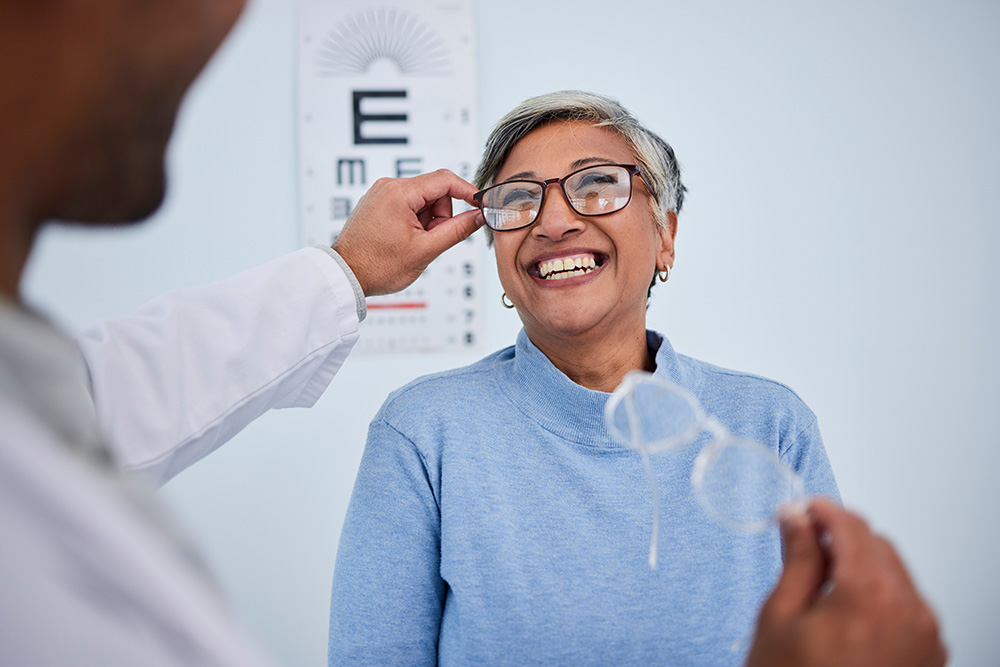
Can you prevent age-related vision loss?
It’s normal to notice mild vision changes as you get older, but vision loss is a sign of a more serious problem. But what is age-related vision loss, and how can it be prevented? The experts of USC Roski Eye Institute, part of Keck Medicine of USC, explain the most common cause of age-related vision loss and what you can do to protect your sight.
Age-related macular degeneration
While diabetic retinopathy, cataract, glaucoma and chronic dry eye are all common and serious conditions, the leading cause of vision loss in Americans over 60 is age-related macular degeneration (AMD).
As the name suggests, AMD affects the macula (the part of the retina responsible for central vision and the ability to see detail), and it can impact one or both eyes. The condition comes in two forms: dry and wet.
Dry AMD makes up 80% of AMD cases. It’s caused by yellow deposits of protein and lipids called “drusen” that develop behind the retina.
Dry AMD progresses slowly, but when it goes untreated, irregular blood vessels will start to grow behind the retina. This causes wet AMD, which is more severe and progresses quickly.
How to tell if you have age-related macular degeneration
Early-stage AMD has no symptoms, so the best way to catch the condition early is by getting a yearly eye exam.
When AMD isn’t caught early, patients will start to experience blurriness or waviness in their central field of vision.
As AMD progresses, the vision distortions expand and get more severe. Eventually, blank spots will start to form in a patient’s line of sight.
The more advanced AMD is, the harder it is to treat — so early diagnosis and intervention make a big difference.
Protect your vision today
Remember, vision loss is not inevitable as we age. In addition to getting regular eye exams, you can take steps to protect your sight.
- Get plenty of exercise
- Avoid smoking
- Stay hydrated
- Eat nutritious food
- Wear sunglasses when outdoors
If you work at a computer, remember the 20/20/20 rule: Every 20 minutes, take a 20-second break to look 20 feet away.
Your eye doctor can monitor for early signs of damage or disease, give personalized tips and prescribe any glasses or contact lenses you might need. If you’re due for your annual eye exam, the experts at USC Roski Eye Institute are ready to help you.
Topics
